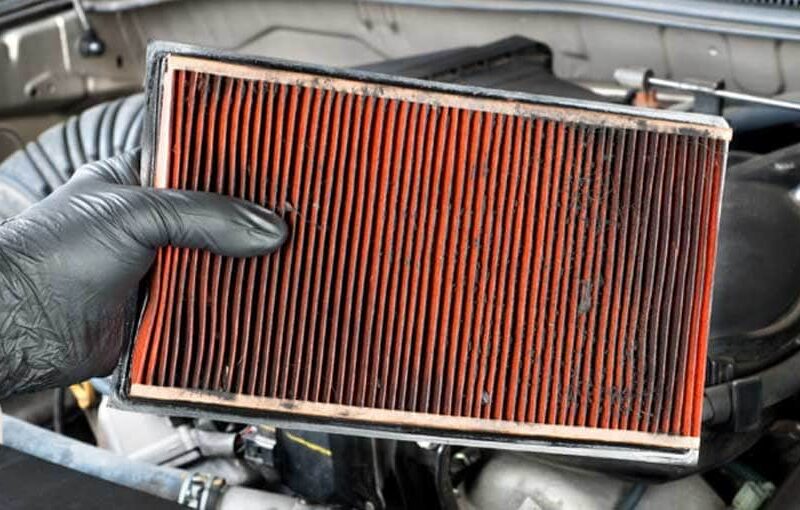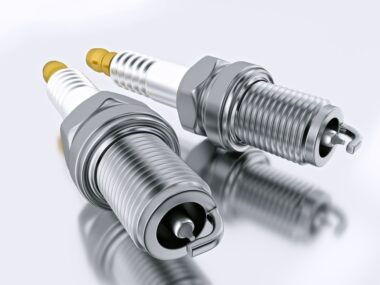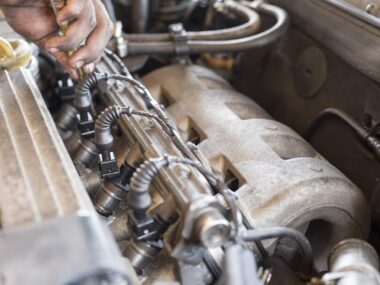The Air Filter Advantage: Everything You Need to Know for Cleaner Air
An air filter is a crucial yet often overlooked component that plays a pivotal role in maintaining the cleanliness and quality of the air we breathe. By trapping airborne particles such as dust, pollen and pollutants, air filters help protect our respiratory health and ensure that our HVAC systems and vehicles operate efficiently.
Regular maintenance and timely replacement of air filters can lead to improved air quality, better health outcomes and enhanced performance of your equipment. In essence, investing in a high-quality air filter and keeping it in good condition can make a significant difference in your daily life, making it a small but powerful ally in the quest for cleaner air.
An air filter is designed to remove airborne particles such as dust, pollen and smoke from the air that circulates through your HVAC system, car or other environments. Imagine it as a gatekeeper that stops harmful particles from entering your lungs or clogging up your machinery. The primary purpose of an air filter is to improve air quality by trapping contaminants that could otherwise cause health issues or damage your equipment.
Without an air filter, the air you breathe could be laden with pollutants, allergens and other particles that contribute to respiratory problems and general discomfort. For your vehicle, a clean air filter means better engine performance and fuel efficiency. For your home or office, it means a healthier living environment.
Types of Air Filters: Finding the Right Fit
Choosing the right air filter can seem overwhelming given the variety available. But understanding the different types can help you make an informed decision. Here’s a rundown of the most common air filters and their unique benefits:
1. HEPA Filters
High-Efficiency Particulate Air (HEPA) filters are renowned for their ability to capture at least 99.97% of particles as small as 0.3 microns. This makes them highly effective for removing dust, pollen and even some bacteria and viruses. HEPA filters are commonly used in home air purifiers, medical facilities and industrial settings where air quality is crucial.
2. Activated Carbon Filters
Activated carbon filters use a bed of activated carbon to trap gases and odors. These filters excel in removing volatile organic compounds (VOCs) and unpleasant smells from the air. They are often used in combination with HEPA filters for a more comprehensive air purification approach.
3. Electrostatic Filters
Electrostatic filters use static electricity to attract and trap particles. They are washable and reusable, making them a cost-effective choice. While not as efficient as HEPA filters in trapping smaller particles, they still provide a good level of air filtration and can be a practical choice for general home use.
4. Pleated Filters
Pleated filters are made of folded paper or polyester, offering a larger surface area for trapping particles. They can capture a significant amount of dust and allergens and are commonly used in residential HVAC systems. Pleated filters come in various MERV (Minimum Efficiency Reporting Value) ratings, indicating their efficiency.
5. Washable Filters
Washable filters are designed to be cleaned and reused multiple times. They are typically less efficient than HEPA filters but can be a cost-effective option for those willing to perform regular maintenance. They are commonly used in home air conditioning systems and some vacuum cleaners.
How to Choose the Best Air Filter for Your Needs
Selecting the right air filter depends on several factors, including the environment, specific needs and budget. Here are some tips to help you make the best choice:
- Consider Air Quality Needs: If you suffer from allergies or respiratory issues, a HEPA filter may be the best option. For general home use, a pleated filter might suffice.
- Check Compatibility: Ensure the air filter is compatible with your HVAC system or vehicle. Check the manufacturer’s specifications for the correct size and type.
- Evaluate Maintenance Requirements: Consider how often you’re willing to clean or replace the filter. Some filters, like washable ones, require regular cleaning, while others need less frequent maintenance.
- Budget: Higher efficiency filters, like HEPA, tend to be more expensive but offer better performance. Balance your needs with your budget to find the best solution.
Maintaining Your Air Filter: Tips and Tricks
Proper maintenance of your air filter is essential to ensure its effectiveness and longevity. Here’s how you can keep your air filter in top shape:
1. Regular Replacement
Most air filters need to be replaced periodically. For home HVAC systems, check the filter every 1-3 months and replace it as needed. For car air filters, follow the manufacturer’s recommendations, usually every 12,000 to 15,000 miles.
2. Cleaning and Washing
If you use washable filters, clean them regularly according to the manufacturer’s instructions. Allow them to dry completely before reinstalling to prevent mold growth.
3. Monitor Air Quality
Keep an eye on air quality indicators in your home or vehicle. If you notice increased dust or a decrease in air flow, it may be time to check or replace the filter.
4. Professional Inspection
For HVAC systems, it’s a good idea to have a professional inspect and maintain your system periodically. They can ensure that the filter and other components are functioning correctly.
The Impact of Air Filters on Your Health
The health benefits of using air filters extend beyond just reducing allergens. Clean air can contribute to:
- Reduced Allergies: By trapping pollen, dust and pet dander, air filters can help minimize allergy symptoms and improve overall respiratory health.
- Lower Risk of Respiratory Illnesses: Filtering out pollutants and bacteria can reduce the risk of respiratory infections and conditions like asthma.
- Improved Sleep Quality: Cleaner air can contribute to better sleep, especially for those with asthma or allergies.
The Environmental Impact of Air Filters
Air filters play a role in not only improving personal health but also in reducing environmental impact. By trapping pollutants and reducing the need for excessive HVAC energy use, filters contribute to a cleaner and more sustainable environment. Additionally, many filters are recyclable, which helps minimize waste.
Future Trends in Air Filtration
As technology advances, so do air filters. The future of air filtration is likely to include:
- Smart Filters: Integration with smart home systems for real-time monitoring and alerts.
- Advanced Materials: Development of new materials for more efficient filtration and longer lifespan.
- Eco-Friendly Options: Increased availability of sustainable and recyclable filters.
In the grand scheme of maintaining a healthy and efficient environment, the air filter is a small yet mighty player. Whether you’re looking to enhance air quality at home or ensure optimal performance in your vehicle, understanding the types of air filters, their benefits and maintenance tips can make a significant difference.
Frequently Asked Questions
What does an air filter do?
An air filter is designed to remove airborne particles such as dust, pollen, pet dander and other contaminants from the air that passes through it. By trapping these particles, the filter helps improve indoor air quality, reduce allergens and protect your HVAC system or vehicle engine from damage.
How often should I replace my air filter?
The frequency of air filter replacement depends on the type of filter, its usage and environmental conditions. Generally, HVAC air filters should be replaced every 1-3 months, while car air filters are typically changed every 12,000 to 15,000 miles. However, if you have pets, allergies or live in a dusty environment, you might need to replace or clean the filter more often.
What are the different types of air filters available?
Common types of air filters include HEPA filters, which are highly efficient at capturing small particles; activated carbon filters, which remove gases and odors; electrostatic filters, which use static electricity to attract particles; pleated filters, which have a larger surface area for trapping dust and allergens; and washable filters, which can be cleaned and reused.
How do I know which air filter is right for my needs?
Choosing the right air filter depends on your specific needs. For allergy sufferers, a HEPA filter is often recommended due to its high efficiency. If you need to eliminate odors or gases, an activated carbon filter is a good choice. Consider factors such as the type of environment, compatibility with your HVAC system or vehicle and your budget when selecting a filter.
Can I clean and reuse air filters?
Some air filters are designed to be washable and reusable, such as certain electrostatic and HEPA filters. These filters can be cleaned according to the manufacturer’s instructions and reused multiple times. However, not all air filters are washable and using a filter beyond its recommended lifespan can reduce its effectiveness. Always follow the manufacturer’s guidelines for cleaning and replacement to ensure optimal performance.






